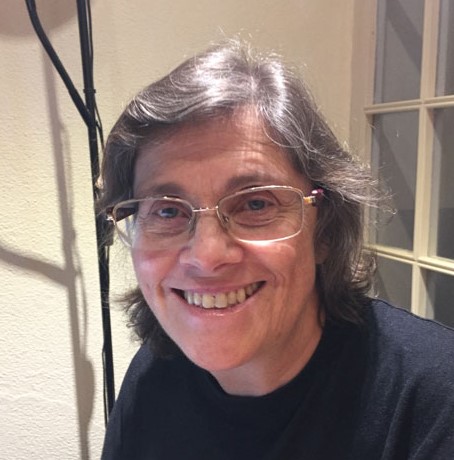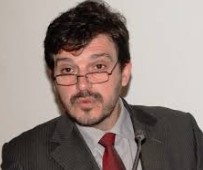
Juan Ramón Nuñez Pestano
Profesor
titular de Historia Moderna. Departamento de Geografía e Historia. Universidad de La Laguna.
Main research of the author is related to the
History of Agrarian and Rural History, field he referred to most of his works
published, starting with his memory of graduate published with the title “The
Dynamics of the Ownership of the Land Property in Icod de los Vinos, Tenerife
(1796-1830). Social Transformations and Economic behaviour in the Crisis of the
Old Regime” (1984), or else some contributions to tributes and congresses as
"Census and Tributes in the Canary Islands at the End of the Old Regime"
(1988); "Irrigation, supply urban and property of water in Tenerife at the
end of the old regime" (1993); "Terrestrial communications in
Tenerife" (2003) and most recently the “History of the Forest
of Tenerife”, work in two volumes, in collaboration (2011).
In recent years, this path of research has led
him to be interested in the study of communal practices and its disappearance,
as it is the case of: "Peasants, agrarian change and communal uses: the
case of the grassland of La Laguna (Tenerife), 1498 - 1769" (2014).
"Communal rights and social conflict during the early modern period:
revolts against the encroachments of the pastures of the Valley of La Orotava
(2015) or" Struggle for the appropriation of resources and the end of
municipal exploitations in las Cañadas del Teide: forms of ownership or
management systems "(2015), and “History and cultural
landscape: the ranches of "culture and cattle" on the summits of
western Tenerife” (2018).
In
parallel with this line of research, the author has developed in addition a
second line of works related with the institutional history of the Canary
Islands during the modern age, as it is the case of "the crisis of the
municipal model in the Canary Islands to end of the old regime (1994), or the
monograph titled the triumphant Nivaria and its glorious capital or the origins
of the insular lawsuit (2001). The need to teach the subject of archives in the
Bachelor's degree in history gave rise to a new line of research in archival
and documentary genesis which in recent years has developed in parallel with
his investigations of agrarian history, highlighting work on the documentary
resources of the ancient councils, as was the case with the catalogue of
documents of the Council of La Palma (1501-1812) published in 1999 or the
chapter “Proceedings of the Council of Tenerife: the application of
quantitative analysis to know the Organization and genesis of a documentary
series” (2009), although recently this line of work has evolved into the study
of the process of formation of the family archives, topic on which has been
invited to the Congress Family files paper." Social groups, domination and
construction of memory (12th - 16th) Vitoria (2014), with the title "the
formation of a family archive: the Lercaro family of Tenerife".

Antónia Fialho Conde
Antónia Fialho Conde is assistant professor in the Department of History of the Universidade de Évora, where she obtained her doctorate in 2005 with the thesis O mosteiro de S. Bento de Cástris e a Congregação Autónoma de Alcobaça (1567-1776), published in 2009 by Edições Colibri. She is an integrated researcher in CIDEHUS-UÉvora, in lines 1 and 2, and collaborating researcher of CEHR/UCP. She also works regularly with the laboratory HERCULES/UÉvora. Her fields of research are Female Cistercian Monasticism and History of the Church in Portugal (modern period), as well as Heritage and Material Culture (modern period). She has had work published in different publications, in the field of teaching and in the orientation of graduate and post-graduate theses. She participates in various funded national and international projects, and was the Head Researcher of the FCT project EXPL/EPH-PAT/2253/2013, Projecto ORFEUS - A Reforma tridentina e a música no silêncio claustral: o mosteiro de S. Bento de Cástris. She is Director of the Master’s Orientation Commission in Management and Evaluation of Historical and Cultural Heritage of the Universidade de Évora and Advisor of the Master’s Commissions Erasmus Mundus TPTI (Évora-Sorbonne-Pádua) of the first Cycle in History and Archaeology of the Universidade de Évora.

Margarida Sá Nogueira Lalanda
Margarida Sá Nogueira Lalanda has a doctorate in the History of Culture and Institutions, and is assistant professor in the Universidade dos Açores. Integrated member of CHAM - Centro de História d’Aquém e d’Além Mar of the Universidade Nova de Lisboa e da Universidade dos Açores, where she is part of the Grupo Configurações Políticas e Religiosas (Political and Religious Forms). She has written various studies about the history of society, culture and religious life, particularly the Poor Clares and female convents in the 15th – 18th centuries. These include her doctoral thesis (1996) A Sociedade Micaelense no século XVII (Estruturas e Comportamentos) published in 2002 by the Fundação Calouste Gulbenkian with the Fundação para a Ciência e a Tecnologia; A admissão aos mosteiros de Clarissas na ilha de São Miguel (séculos XVI e XVII); co-author of «Regra e Comunidade: os Poderes nas Constituições Gerais de 1641 para os Mosteiros de Clarissas», (in Arqueologia do Estado); «Clarissas (Ordem de Santa Clara)» (in Dicionário de História Religiosa de Portugal); «Vida religiosa e trabalho: freiras de clausura no século XVII nos Açores» (in A Mulher e o Trabalho); «Considerações históricas sobre a Madre Teresa da Anunciada» and «Do Convento de Jesus, na Ribeira Grande (S.Miguel), no século XVII: as cartas de dote para freira» (both in Arquipélago. Revista da Universidade dos Açores); «Clarissas nas dioceses do Funchal e de Angra nos séculos XVI e XVII» (in Diocese do Funchal)..

José Virgílio Pissarra
José V. Pissarra (Lisboa, 1971).
Doutorado em História dos Descobrimentos e da Expansão pela Universidade de
Lisboa. Investigador Integrado do Centro de História da Universidade de Lisboa
(CH-UL) e membro efectivo da Academia de Marinha, Lisboa.
Curriculum vitae: https://Orcid.org/0000-0002-1082-9969.

Rute Isabel Rodrigues Dias Gregório
Rute Isabel Rodrigues Dias Gregório nasceu no Uíge, Angola, em 1966. É Professora Auxiliar da Faculdade de Ciências Sociais e Humanas / Departamento de História Filosofia e Artes da Universidade dos Açores e investigadora integrada do CHAM-Centro de Humanidades da Faculdade de Ciências Sociais e Humanas da Universidade Nova de Lisboa e da Universidade dos Açores. Doutorou-se em História, em 2006, com a tese “Terra e fortuna: os primórdios da humanização da ilha Terceira (1450?-1550)” [pub. 2007]. Possui pós-graduação em Ciências Documentais e da Informação pela Universidade dos Açores (2008), tem um Master em Documentação pela Universidade de Alcalá de Henares (2011) [pub. 2015]. Foi diretora da Biblioteca Pública e Arquivo Regional de Ponta Delgada entre 01.10.2011 e 01.01.2017, e diretora da Biblioteca, Museu e Arquivo da Universidade dos Açores, entre 15.02.2017 e 31.08.2018. Exerceu, entre 01.09.2018 e 01.03.2019, em regime de substituição, funções de deputada na Assembleia Legislativa Regional dos Açores. Dirige, atualmente, Serviço Diocesano dos Bens Culturais da Igreja – Diocese de Angra (Açores). Em representação da Diocese de Angra é membro do Conselho Regional de Cultura e da Comissão Consultiva do POTRAA (Plano de Ordenamento Turístico da RAA). Os seus principais temas de investigação enquadram-se na História Económica e Social dos séculos XV e XVI, na História dos Açores (séculos XV-XVI) e na Arquivística Histórica (séculos XV-XX). Tem publicados vários livros e artigos em revistas da especialidade.